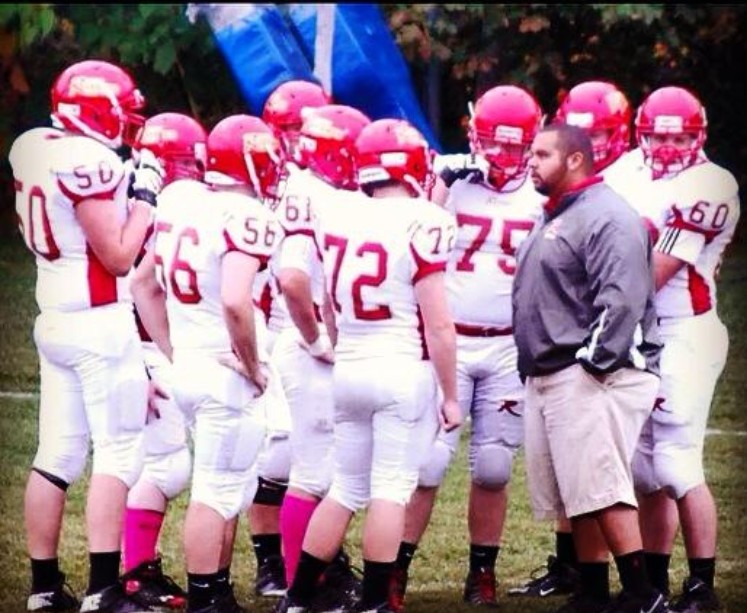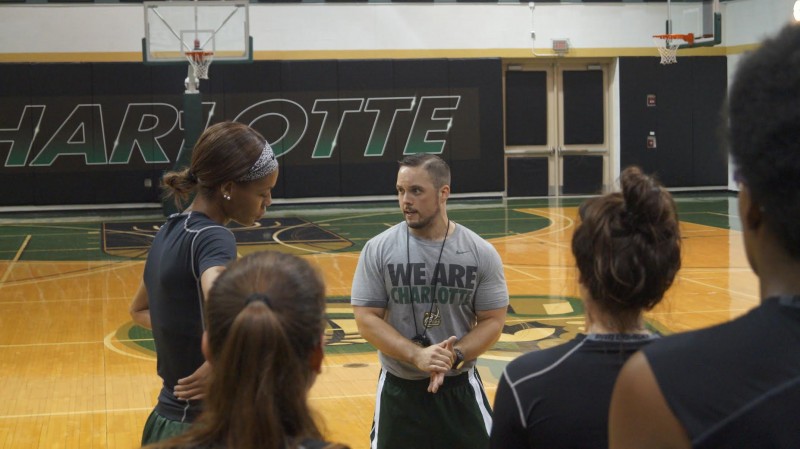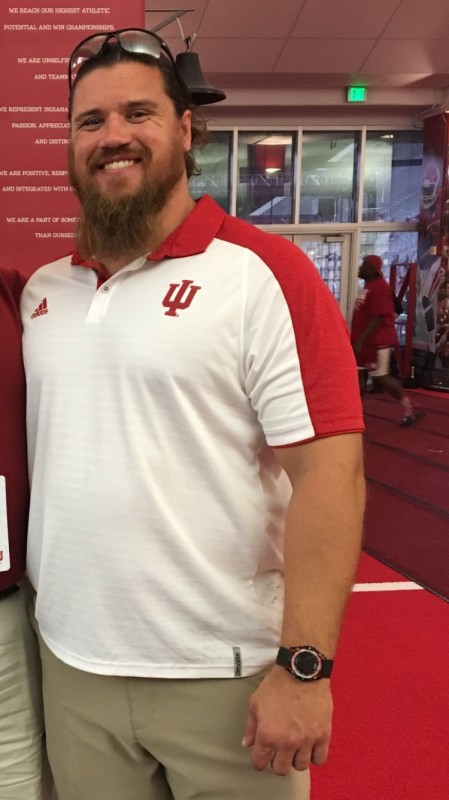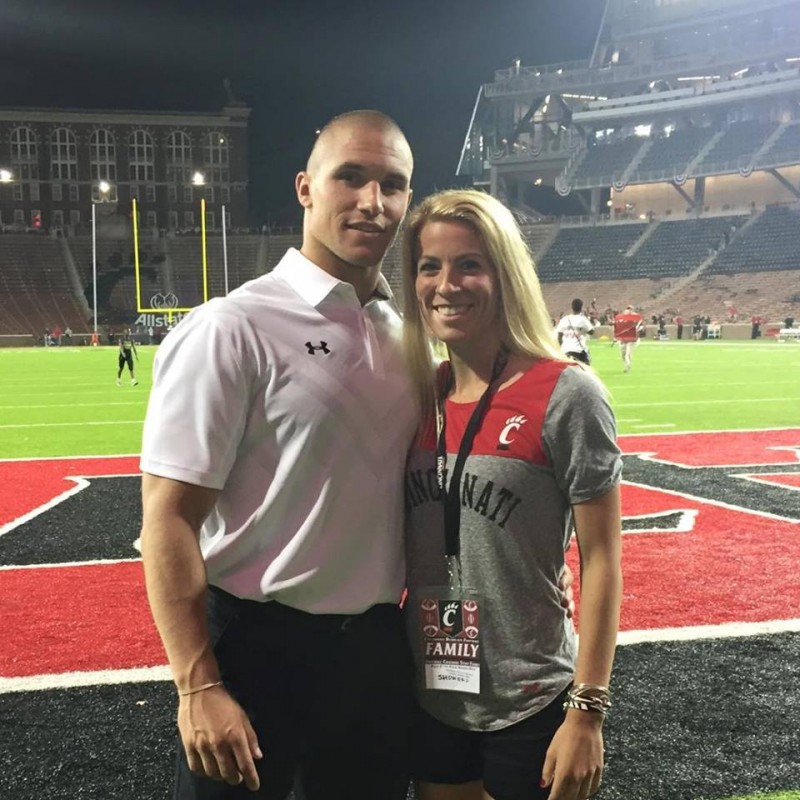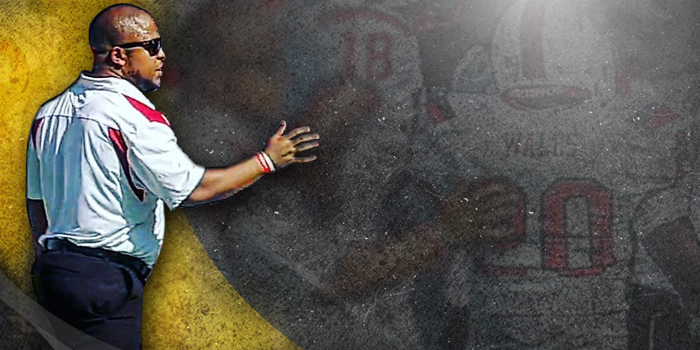
This is a continuation of the first part of "Meeting of the Minds." In this part, I’ve asked the coaches to expand on the topic of training for this new generation of athletes — a generation that we know needs to be loved up a little differently than previous ones. I also asked them to talk about bandwagon trends in the industry they try to avoid. Sometimes jumping on the hot new training method with blind faith doesn’t always work out. Most times you must do your research before subjecting your athletes to a program or trend you know nothing about and have only seen referenced in an online video. Also, the coaches offer key knowledge that young strength coaches need to know before getting into the industry.
David Kitchen — Head Strength Coach, Bloomsburg University
I’m at a smaller school so, like a lot of us, I have to wear a lot of different hats. I have to be able to change my style to figure out what works to bridge the current culture of the team with the culture we want to create. I have to take a different approach with football than I do with basketball or women’s tennis. You can’t jam a square peg into a round hole and hope it works. For example, everyone has a guy back home they train with over summer or break. This has led to some athletes wanting to do the same things their “strength guru” back home does when they get back into a college team setting. My challenge is trying to get the guy back home out of their head.
It’s not that that guy is wrong. Usually, I personally don't know him or what he does, but I have to get them to understand that here at Bloom, we’re going to do it our way. The challenge is getting them to buy into our message and our culture. I also think that generally speaking, college kids have terrible diets. This is especially true at a smaller school where we don’t have a nutrition budget. It’s a constant battle to teach these kids to eat right and focus on their recovery, which is something that we’re currently working to address.
RECENT: S&C Meeting of the Minds — History, Athlete Development, and In-Season/Off-Season Goals
In terms of trends, I think everything has its merits and strengths, but you have to be able to sift through the mud and find what’s real and what’s not. The only way to do that is by researching the new “best program ever” and working to understand it. Sometimes you can take things from it and sometimes you can’t. I think sometimes we see trends coming from the internet videos that kids want to do. That’s not a shot at the private sector at all; I know some great coaches in the private sector, but just like in the college world, there will always be somebody doing some crazy, overcomplicated thing because it looks cool on a ten-second Instagram post. I have to credit Cam Davidson at Penn State for telling me, “A program should be an inch wide and a mile deep.” That’s really something I believe in. Do the basics and their variations, and do them better than everyone else.
You need to make sure what you’re doing works, and more importantly that it works for your situation. For example, I have no Tendo Units, and even if I had the budget to buy them, I wouldn’t. At this point, my athletes haven’t developed to the point where a Tendo Unit would be a good investment. Therefore, I don’t do a lot of true velocity-based training. My athletes just need to get strong right now. VBT works and it works well, but do my 18- year old freshmen basketball girls that can’t do a pull-up or push-up need that? No, they need to get basic movement patterns down and develop base levels of strength. Don’t use your trump cards too early in the hand. Keep it simple and keep it savage for as long as possible. Then when you stop progressing, you’re not out of bullets because you introduced something too early.
My advice for the young strength coaches out there is that, first and foremost, above everything else, you have to train! You don’t learn how to lift in the classroom. You've got to know what 90% on your back feels like so that you know how your athletes feel. I make all my interns come to staff lifts. It doesn’t mean you have to do what I’m doing, but you have to do something.
On the flip side, you have to know why you’re doing something and ask questions. I never asked the right questions when I first started in this field, and as a result, I didn’t always have a clear understanding why we did what we did. Now I ask a ton of questions and I surround myself with people who are smarter than me. I’m a 24-year-old head strength coach; I’d be a liar if I didn’t admit that I ask for help all the time! Don’t be afraid to ask for help. When you get the help and understand why then you try it yourself. Train hard, seek out people smarter than yourself, and never, ever think you have it figured out.
Ryan Nosak — Director of Women’s Basketball, UNC Charlotte
With the age of entitlement, I’ve seen many athletes expecting everything to be done for them or laid out perfectly before them. I do my best to combat entitlement by stressing ownership in what we are doing. The athletes clean up after every single training session and set up when need be. For certain exercises or drills, I’ll also pick individual players to lead that exercise. When explaining the lift for the day, I’ll ask the players what I am looking for in the lift or what the coaching cues are or the lift. I want my athletes to know what they are doing.
As far as trends go, it’s my opinion that coaches have gotten away from actual training and spend too much time doing “correctives” as the bulk of their training program. Strength work is corrective in itself when performed correctly. It’s important as coaches to know how to coach the lifts and progress or regress when needed.
My advice for young strength coaches out there looking to break into the industry would be this:
1. Never stop learning. Reading has proven to be one of my most important developments as a young strength and conditioning coach. Don’t just read training books. Educate and diversify yourself so you are able to have a conversation that doesn’t pertain to lifting weights. This is especially important when talking to administrators or sport coaches.
2. Network, network, network. Did I say network? Networking is one of the reasons I am where I am today. Someone’s recommendation of you will go a long way in this profession. If I need an assistant in a few years, I will call one of my mentors and ask if they have any recommendations before moving on. Also, putting yourself out there is an incredible learning experience in itself. I do my best to email or call coaches that I may have listened to in a podcast. Some of these interactions have turned into friendships. Hearing someone else’s perspective will do wonders for your own education as well.
3. Enjoy the journey. I have lived in five different cities within the past three years and I have worked at five different schools. I have nearly hit rock bottom and I have been broke with no job in this profession. But the day that you land your first full-time job — that’s truly when you realize there is beauty in the struggle. I do not regret any decision I have made in my career, nor am I angry at the way things turned out. Everything happened for a reason to allow me to become the person that I am today. At the end of the day, we are in this business to affect lives. Never underestimate the ripple effect you are having on lives. If you have touched one life and that one life touches another or ten or a million, you are touching lives and making a difference. That is the best part of the journey.
Matt Clapp — Assistant Strength Coach, Indiana University
In regards to training the athlete, you have to motivate them on a daily basis and instill the will to come in and go as hard as possible, day in and day out. There can be no drop-off between the field of play and training. The mentality has to be carved out in the weight room so there is a direct translation onto the field. It doesn’t matter what the generation or who it is, you have to learn to motivate people. This comes from just knowing your athletes and getting to know what makes them tick. Every athlete is going to be different, just as every person you encounter is different. No two people are motivated the same way. But you won’t know what motivates them if you don’t take the time and get to know your athletes. Building good relationships and strong lines of communication goes a long ways towards discovering what drives someone to want to be great.
I wouldn’t say there are bandwagon trends, but I think sometimes in this profession we shy away from pure, old-fashioned hard work — like letting technology tell us whether an athlete is going hard or barely breaking a sweat. There have been many great coaches who have accomplished good training with their teams without the use of technology. It’s not to say that technology cannot be utilized and doesn’t have its advantages; it’s just another tool in the toolbox that you have as a strength coach.
For the young strength coaches out there, there’s only one word I need to say: determination. Keep learning as much as possible and coach your ass off. Nothing is more important than the willingness to grow. The only way to become better as a coach is to coach and learn as much as possible. When you’re not coaching, you need to be learning new things. You have access to oceans full of knowledge right in front of you. If you are an intern, ask your mentor questions. If you want to know something, look it up online or read a book. You need to study your craft and practice your craft as much as humanly possible. If you grind and keep a positive head on your shoulders you will fall in the right place.
Parker Showers — Assistant Strength and Conditioning, University of Cincinnati
You have to think about the amount of good and negative information that the athletes are exposed to on a daily basis from the instant gratification of a smartphone. Social media is so prevalent that social media endeavors have become their reality more than reality itself. If you are a student-athlete in today’s society, a positive enforcement of gratification from a practice, training session, coach, or a motivational speaker can be completely lost on you the moment you look at your phone. By the time your athletes hit the locker room, all of this is lost to them and they’re completely disconnected with anything that isn’t their smart phone.
Tweets are trending that their team is overrated, there is animosity among teammates over a tweet one put out, and one of the player’s girlfriends liked another player’s photo. This is where we as coaches have to become more active in these areas. Communication is of the utmost importance in separating fact from fiction of the internet and bringing the athlete's mentality back to what really is important. Those things should be the mission, vision, and values of the organization.
What are some bandwagon trends I’ve noticed in our profession? Overhauling your program with functional and prehab exercises. Every movement has its time and place in a program, but what are we trying to accomplish? One-arm overhead Bulgarians may challenge the individual, but can we overload and progress it far enough to even consider it the meat and potatoes of are training? Something like this may be training for the novice, but is activation and prehab for the experienced.
To all the young strength coaches out there, my advice is this: be an aggressive listener. Don’t speak to be heard. Instead, sit back and take in as much information as possible from the ones you’re speaking with. Focus on the details in everything you do. The little things are the ones that matter the most. Your boss and even the players will notice when something is out of order or font sizes are off. If one band is left out and gets stolen, that is money lost. It may only seem like one band, but it may have been the extra band needed by a player during the warm-up. Don’t assume, ask questions. Clarify any doubt you have each and every day. Continually read, network, and professionally develop. If you aren’t getting better, you are getting worse. And my last bit of advice: live below your financial means. Don’t increase expenses even if your salary increases.










